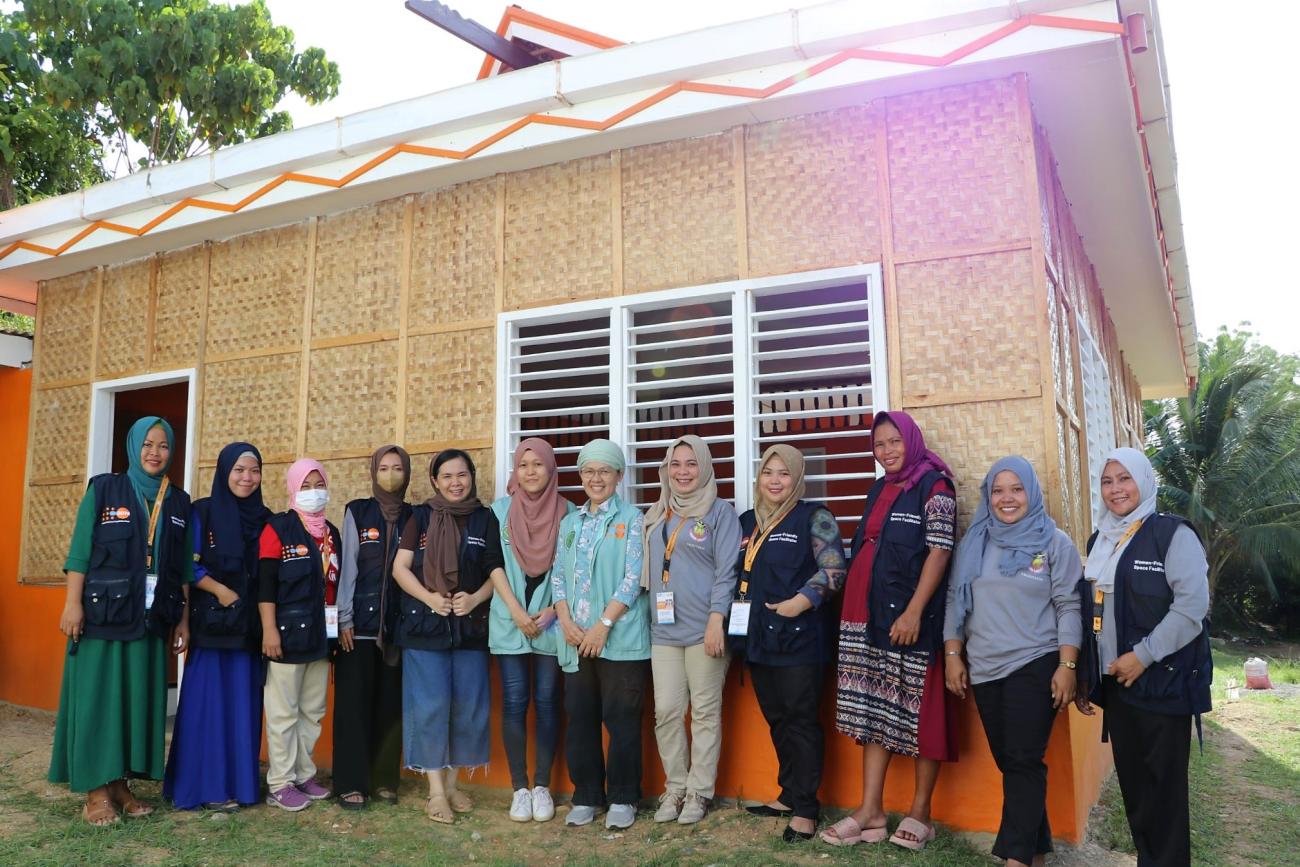4 hours on horseback: Maguindanao women brave rough roads, find purpose in ‘women-friendly spaces’

For International Day of the World's Indigenous People, UNFPA shares how Teduray community facilitators are helping fill gaps in service in remote areas.
GUINDULUNGAN, MAGUINDANAO DEL SUR – Merlyn Tresero normally has to cross two rivers and walk seven hours by foot to reach the rural health facility nearest to her home.
Merlyn, who is a member of the Teduray tribe (one of the indigenous groups in southwestern Mindanao), lives in the hilly village of Barangay Ahan in Guindulungan, a 6th class municipality in the Philippines. Most of her neighbors face the same arduous journey every time they need to access health care or other social services.
Their other two options are to spend P150 for a one-way motorcycle ride—an amount that many cannot afford—or to ride a horse, both of which take four hours.
Merlyn, who was eight months pregnant at the time of the interview, now opts to ride a horse when it is not in use by other family members. This is relatively more comfortable than a motorcycle, especially on a bumpy unpaved road, although she still has to walk for 30 minutes going to the rural health unit.
The 40-year-old mother used to earn a living selling vegetables grown in her backyard garden. One of her buyers told her that she could find additional income volunteering at the rural health unit or facilitating community-based activities. It was through that information that she learned about cause-oriented groups and was later tapped as one of 75 facilitators of Women-Friendly Spaces (WFS) – a component of the Resilient Livelihoods Development Project for Women and Youth internally-displaced persons (IDPs).
Bai Masla Beng Campiao, one of the coordinators of UNFPA’s implementing partner Mindanao Organization for Social and Economic Progress (MOSEP), said WFS were previously tents deployed during humanitarian emergencies.
“This is the first time that WFS facilities are made of concrete,” she said, explaining that it was envisioned to be a comfortable place where women can gather and talk about rights and issues.
Besides serving as a venue for community-based activities, the WFS are also being considered for innovative uses such as a communal kitchen for nutrition promotion and the livelihood aspect of the project, or a half-way home for pregnant women coming from far-flung villages like Merlyn’s.

Jointly implemented by UNFPA and UN FAO, and supported by the Australian Government, the project also involves the training of WFS facilitators who assist rural health units in coordinating and delivering services related to maternal health, sexual and reproductive health and rights (SRHR) and prevention and response to gender-based violence, especially during emergencies and in remote areas in Mindanao.
For remote villages, the role of WFS facilitators like Merlyn are crucial.
“During our training, we were taught how to encourage pregnant women (in our communities) to consult with doctors. We were also taught how to deal with cases of gender-based violence, help raise awareness about it,” she said, recalling her sessions with MOSEP.
WFS facilitators fill the gaps of service between remote areas and the local government unit.
Merlyn, since becoming a facilitator, serves as a link between her community and the rural health unit and the municipal social welfare office.
With the skills she learned from the project, she has helped families access critical services. “I teach them to write a note for the midwife, detailing the illness. For example, fever and cough,” she said, adding that it also serves as a certificate of authority for her to receive the medicine on their behalf.
“We are really grateful how this project has helped them, Especially the Teduray (tribe),” Merlyn said. “It would be good if we can establish more WFS in other villages.”
She added, “With the WFS, we are able to help a lot of people. And people (from our communities) love us back because of that.”
The “Resilient Livelihoods Development Project for Women and Youth IDPs” supported by the Australian Government will continue until 2024. It aims to enable women and youth IDPs meaningful participation in sustainable and resilient agricultural livelihood initiatives through increased health, protection, and wellness. In addition to Guindulungan, it is also being implemented in Datu Odin Sinsuat and Talitay in Maguindanao del Norte, as well as Datu Saudi Ampatuan and Shariff Saydona Mustapha in Maguindanao del Sur.
This article is an abbreviated version of the original posted by UNFPA Philippines.


